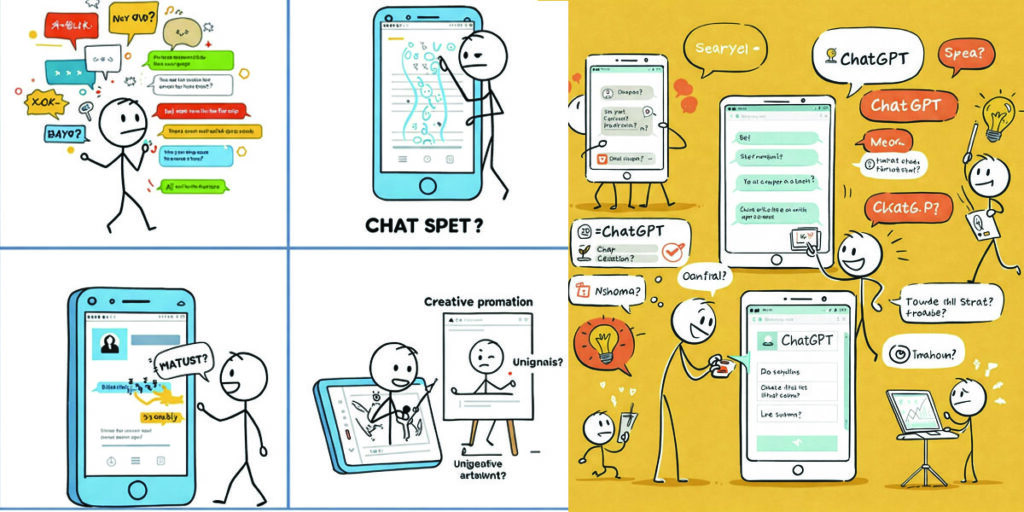AI chatbot search engine blending answers with real-time search results.
The relentless march of technological innovation has consistently reshaped the landscape of information access and digital interaction. In recent years, the confluence of artificial intelligence (AI) and search engine technology has given rise to a new generation of tools promising more intuitive, comprehensive, and efficient ways to navigate the vast expanse of the internet. Among these emerging platforms, YouChat, the conversational AI search engine developed by You.com, stands out as a compelling example of this transformative trend. By seamlessly blending the capabilities of a sophisticated AI chatbot with the power of real-time search results, YouChat is not only redefining how users seek information but also carving a unique niche within the burgeoning digital economy and fostering new avenues for online networking.
To fully appreciate the significance of YouChat, it is crucial to contextualize its emergence within the historical evolution of search engines and the parallel advancements in artificial intelligence. The internet, since its widespread adoption in the mid-1990s, has witnessed a dramatic increase in the volume of information available online. Early search engines, such as AltaVista, Lycos, and Yahoo!, relied primarily on keyword matching algorithms to index and retrieve web pages. While revolutionary for their time, these tools often presented users with a deluge of potentially irrelevant links, requiring significant effort to sift through and extract the desired information.
The late 1990s and early 2000s saw the rise of Google, which introduced a more sophisticated approach based on PageRank, an algorithm that analyzed the quantity and quality of links pointing to a webpage to determine its relevance and authority. Google’s dominance in the search market for over two decades stemmed from its ability to consistently deliver more relevant and higher-quality search results compared to its predecessors. This era was characterized by a paradigm where users formulated keyword-based queries and received a list of web pages to explore.
However, the increasing complexity of information needs and the rapid advancements in natural language processing (NLP) and machine learning (ML) have paved the way for a new era of search. Users are increasingly seeking direct answers, summaries, and conversational interactions rather than just a list of links. This shift has fueled the development of AI-powered chatbots capable of understanding natural language queries, extracting information from various sources, and presenting it in a concise and conversational manner.
The emergence of sophisticated large language models (LLMs) like GPT-3 and its successors has been a pivotal moment in this evolution. These models, trained on massive datasets of text and code, possess an unprecedented ability to generate human-like text, understand context, and engage in meaningful conversations. This underlying technology forms the bedrock of conversational AI search engines like YouChat.
You.com, founded by Richard Socher and Bryan McCann, recognized this evolving landscape and aimed to create a search experience that goes beyond simply retrieving links. YouChat, launched as part of the You.com search platform, embodies this vision by integrating a powerful AI chatbot directly into the search process. When a user poses a question, YouChat not only leverages its underlying LLM to understand the intent and context but also simultaneously performs a real-time search across the web. The AI then synthesizes the information gleaned from the search results, along with its own vast knowledge base, to generate a direct and conversational answer.
This hybrid approach distinguishes YouChat from traditional search engines and standalone AI chatbots. Traditional search engines excel at providing a broad range of relevant documents but often leave the user to synthesize the information. Standalone chatbots, while capable of engaging in conversations and providing information, may lack access to the very latest real-time data available on the web. YouChat aims to bridge this gap by offering the conversational fluency and synthesis capabilities of an AI with the up-to-date information retrieval of a search engine.
The economic implications of this innovative approach are significant. The digital economy thrives on efficient information access and effective communication. YouChat has the potential to enhance productivity for individuals and businesses alike by providing quick and accurate answers to complex questions, summarizing lengthy documents, and facilitating a more intuitive research process. For instance, a researcher could ask YouChat to “summarize the key findings of the latest IPCC report on climate change,” and the AI would not only retrieve relevant reports but also synthesize the information into a concise summary, saving the researcher valuable time.
Furthermore, YouChat’s conversational nature can lower the barrier to entry for information seeking. Users who may struggle with formulating effective keyword-based queries can interact with YouChat in a more natural and intuitive way, asking questions as they would to a human expert. This accessibility can empower a wider range of individuals to leverage the vast resources available online.
The integration of real-time search results is crucial for maintaining the accuracy and relevance of YouChat’s responses. Unlike chatbots that rely solely on their training data, which can become outdated, YouChat constantly taps into the latest information available on the web. This ensures that its answers are informed by the most current events, research findings, and data. For example, if a user asks about the current stock price of a particular company, YouChat can perform a real-time search and provide the latest available information.
Beyond information retrieval, YouChat also fosters new avenues for online networking. Its conversational interface encourages a more interactive and engaging experience compared to traditional search. Users can ask follow-up questions, request clarifications, and delve deeper into specific aspects of a topic, creating a dynamic and personalized learning experience. This interactive nature can facilitate a form of asynchronous knowledge sharing and peer-to-peer learning.
Moreover, You.com has integrated features that allow users to share their YouChat conversations and discoveries with others. This social element can foster communities around shared interests and facilitate the dissemination of information within networks. For instance, a student researching a particular historical event could share their YouChat conversation with classmates, providing a concise summary and sparking further discussion.
The economic market for AI-powered search and conversational interfaces is rapidly expanding. Businesses are increasingly recognizing the potential of these technologies to enhance customer service, streamline internal knowledge management, and drive innovation. YouChat, by offering a compelling blend of search and AI, is well-positioned to capture a significant share of this growing market. Its potential applications span various sectors, including education, research, e-commerce, and content creation.
In the realm of education, YouChat can serve as a powerful learning tool, providing students with instant answers to their questions, explaining complex concepts in simple terms, and guiding them through the research process. For educators, it can assist in curriculum development, resource discovery, and personalized learning experiences.
In research, YouChat can accelerate the process of literature review, data analysis, and hypothesis generation by quickly synthesizing information from diverse sources. Researchers can use it to identify relevant studies, extract key findings, and explore connections between different areas of knowledge.
In e-commerce, YouChat can enhance the customer experience by providing personalized product recommendations, answering product-related questions, and offering real-time support. Its conversational interface can make the online shopping experience more engaging and efficient.
In content creation, YouChat can assist writers, journalists, and marketers by providing background information, generating ideas, and summarizing existing content. It can serve as a valuable tool for research and fact-checking.
However, the rise of AI-powered search engines like YouChat also presents certain challenges and considerations. One crucial aspect is the potential for bias in the underlying AI models and the search results they draw upon. It is essential for developers to actively address and mitigate these biases to ensure fair and accurate information retrieval.
Another important consideration is the issue of information overload and the potential for the spread of misinformation. While YouChat aims to provide concise and accurate answers, the sheer volume of information available online necessitates robust mechanisms for fact-checking and source evaluation. Users also need to develop critical thinking skills to evaluate the information provided by AI-powered tools.
Furthermore, the increasing reliance on AI for information access raises questions about the future of traditional search engines and the role of human curation in knowledge discovery. While AI can undoubtedly enhance the efficiency and convenience of search, the nuanced understanding, critical evaluation, and serendipitous discoveries that can arise from human exploration of information remain valuable.
The networking aspect of YouChat also presents both opportunities and challenges. While the ability to share conversations and insights can foster collaboration and knowledge sharing, it also raises questions about data privacy and the potential for the misuse of shared information. Robust privacy safeguards and clear guidelines for data sharing are essential to ensure user trust and security.
In conclusion, YouChat represents a significant step forward in the evolution of search and information access. By seamlessly integrating the power of AI chatbots with real-time search results, it offers a more intuitive, efficient, and conversational way to navigate the digital world. Its potential to enhance productivity, democratize information access, and foster new forms of online networking positions it as a key player in the expanding digital economy. However, it is crucial to address the challenges related to bias, misinformation, and data privacy to ensure that these powerful tools are used responsibly and ethically. As AI technology continues to advance, platforms like YouChat are likely to play an increasingly central role in how we seek, understand, and share information in the years to come, shaping the future of the internet and the way we interact with knowledge. The ongoing development and refinement of such platforms will undoubtedly be a fascinating and impactful journey in the history of digital innovation.




















